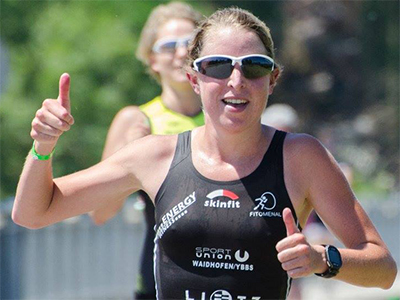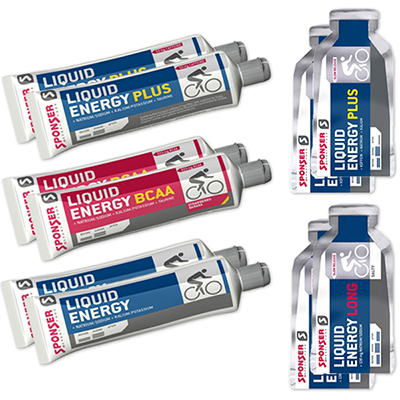How do I prepare for a marathon?
Tips for preparing for a marathon
Victoria Schenk wrote down a few tips for us to prepare for a marathon and we are very happy to be able to present them here.
1. Beware of excessive volumes

Running a marathon means 42 km! to run in the running shoes at a (brisk) pace if possible. That's why you should be careful with the size despite everything. Better a few kilometers too little than too much! Adapt your mileage to your individual lifestyle. A student who can organize his day very flexibly may be able to cope with more kilometers than a manager who usually doesn't leave the office before 8:00 p.m.
After long, stressful days, the immune system is already working at full speed; if you run too long, you put additional stress on your body and risk injuries and illnesses.
It's best to postpone the long or more intense runs to the weekend.
2. Optimal balance between exercise and recovery
To prevent unnecessary injuries, you should slowly increase your mileage from week to week. This also allows your body to better adapt to the scope and intensity of your training. In addition, you should always plan recovery weeks in which your body has the opportunity to fully recover from the tiredness built up through a few weeks of consistent training.
An example of a training rhythm of 3: 1, which means 3 weeks of exercise and 1 week of recovery would be:
30 km - 38 km - 45 km + 1 week recovery with 20 km
35 km - 45 km - 55 km + 1 week recovery with 20-22 km etc ...
Illnesses and minor overloads occur in every marathon preparation. These shouldn't stress you out. Do not try to catch up on lost kilometers. Tick off your break and start your training again with a not too high volume.
3. Long runs are important
In order to know what exactly you should train, you have to analyze exactly what is required in competition. In our case, you want to complete a marathon (as quickly as possible).
So you also have to incorporate long runs that are in the direction of the marathon distance in your training. You shouldn't go from 0 to 100 here either, but give your body time to get used to the required distance. The best thing to do is to add a few miles to your weekly long run every week. e.g. 20 km - 22 km - 25 km - 28 km - 30 km ....... etc.
Are you wondering whether you should run a full marathon in training? No you don't have to. Runs of up to 35 km are usually sufficient beforehand.
4. Don't forget the speed runs
Long runs are very important to us marathon runners and we usually have a lot of fun.
So that the legs don't get too lame, it is also important to incorporate brisk, shorter runs into your training, following the principle "Only by running faster will you be faster!"
Here you can vary between
- Runs in the range of the marathon pace
- brisk 1000m runs much faster than your marathon pace
- Driving game adapted to the terrain with a change of pace.
- You can let your creativity run free here.
5. Coordination and strength training as a supplement

- You shouldn't think that you have to run every day just because you signed up for a spring marathon. Get out of the running and have fun and variety, yes, that shouldn't be missing in your preparation for the marathon. Hill runs, short sprints and running ABC bring power and liveliness to your legs and are also a lot of fun. Alternative sports such as cycling, swimming, cross-country skiing, ski tours or aqua jogging are ideal and also help you to prevent overload or to recover from them.
- You should also not completely forget about compensation and supplementary training. Regular stabilization and strength exercises for your leg axis, bottom and trunk not only shape your bikini figure, but also help you to prevent injuries and overuse problems.
6. Exercise well and eat sensibly
- In order to stay healthy throughout your marathon preparation and to regenerate optimally between the individual training units, you also have to supply your body with the nutrients it needs. After training, it is important to replenish the empty glycogen stores with a high-carbohydrate meal mixed with protein and low in fat. Here you can prepare a wide variety of combinations of pasta, rice, buckwheat, potatoes with fish, meat, pulses and enough vegetables.
During your long runs, you should consume carbohydrates in the form of drinks (e.g.
Powerbar Isoactive Isotonic Spotsdrink von Powerbar
- or
Competition Sports Drink from Sponser
- or
Gels (also from Powerbar, Sponser - available here at sport-kora.com)
- respectively. So you can also test which gels you can best tolerate in competition.
7. Tapering 2-3 weeks before the competition
- Tapering means that you should significantly reduce your volume 2-3 weeks before your planned competition so that your body can go into the competition optimally regenerated.
- However, reducing the scope does not mean “doing nothing”. Quiet, slightly shorter units should still be on your training plan, as well as short brisk units at marathon pace. In this way you can keep your metabolism active and remind your muscles of the load or the pace again and again.
8. Select WW equipment in good time
- Make sure to choose your equipment for the competition several weeks before the marathon. Buy the shoes in good time, plan any waiting times by ordering in the running shop so that you can still break in your new shoes. Also plan your journey to the competition in good time, especially if you are going to travel to another country (e.g. time difference, temperature on the day of the competition, ...)
- Avoid experiments in competition!
9. Beware of training camps
- Training camps in marathon preparation are great and can give you the necessary energy boost or the necessary motivation for the remaining weeks of your preparation. Shortly before the marathon, a training camp makes little sense, here you run the risk of training too much too shortly before the competition.
- Note that you should increase the volume in the training camp by no more than 30-40%. For example, if you can record 8 hours a week at home, you should not plan more than 10-12 hours of pure training time at the training camp. With larger volumes, the risk of injury and overload increases significantly.
- Don't forget your strength and supplementary training at the training camp. It may be even more fun in a group.
- Stress-free arrival and departure days prevent illness. In addition, you should avoid very hard / long units before arriving or leaving, because after these units your immune system is weakened the most and your body is a real target for bacteria and viruses, especially in large crowds (e.g. plane, train, ....)
- I wish you a good and injury-free marathon preparation and a great competition that goes according to your wishes.

Victoria @ sport-kora.com
Victoria is a triathlete, marathon runner and has been running for 15 years. As a state-certified trainer and active athlete, she knows exactly what it takes to achieve your personal goals. She regularly reports on her own successes victoria-schenk.at.
-
Published in:
- General
- 0 comments











Comments
There are no comments. Be the first to comment